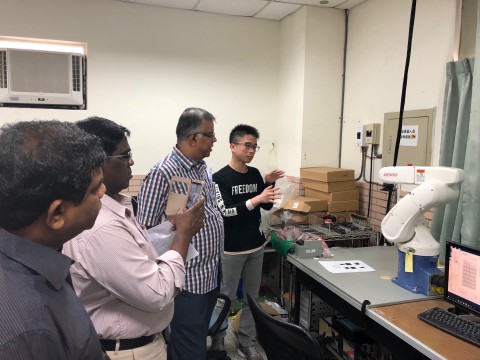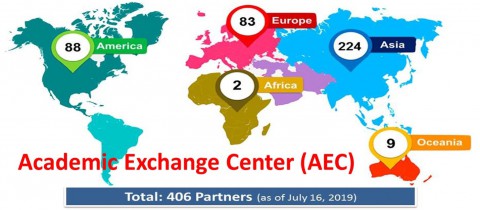Electrical engineering is a branch of physics based on circuit science,  electronics, and electromagnetics. It covers an engineering field that includes in electronics, electronics, power engineering, telecommunications, control engineering, and signal processing. Since the second half of the nineteenth century, with the commercialization of telegraph, telephone, and electrical energy in supply and use, this discipline has gradually developed into a relatively independent professional field.
electronics, and electromagnetics. It covers an engineering field that includes in electronics, electronics, power engineering, telecommunications, control engineering, and signal processing. Since the second half of the nineteenth century, with the commercialization of telegraph, telephone, and electrical energy in supply and use, this discipline has gradually developed into a relatively independent professional field.
 electronics, and electromagnetics. It covers an engineering field that includes in electronics, electronics, power engineering, telecommunications, control engineering, and signal processing. Since the second half of the nineteenth century, with the commercialization of telegraph, telephone, and electrical energy in supply and use, this discipline has gradually developed into a relatively independent professional field.
electronics, and electromagnetics. It covers an engineering field that includes in electronics, electronics, power engineering, telecommunications, control engineering, and signal processing. Since the second half of the nineteenth century, with the commercialization of telegraph, telephone, and electrical energy in supply and use, this discipline has gradually developed into a relatively independent professional field.Electrical engineering broadly covers these branches, but in some places, the term "Electrical Engineering" sometimes does not include "Electronic Engineering" . In this case, "electrical engineering" refers to power systems involving large energy (such as power transmission, heavy-duty electrical machinery and electric motors), while "electronic engineering" refers to electronic systems that handle small signals (such as computers and integrated circuits). Another distinction is that power engineers focus on the transmission of electrical energy, while electronic engineers focus on the use of electronic signals for information transmission. The scope of these sub-areas sometimes overlaps. For example, power electronics uses power electronics to transform and control electrical energy; Also, smart electrical networks detect the power supply of power suppliers and the energy usage of the average household user, in order to save energy, reduce losses, and enhance the reliability of the transmission line according to the adjustment of the power consumption of household appliances. Therefore, electrical engineering also covers the expertise of some areas of electronic engineering.

With the evolution of the times, the application of electric power has become more and more extensive, and electrical engineering has developed many sub-disciplines, such as: power electronics, control engineering, electronic engineering, microelectronics, signal processing, communication engineering, measuring instruments, Computer engineering, optoelectronic engineering and other related disciplines (electromechanical systems, biomedical engineering, etc.). Recently, the development of emerging technologies, such as artificial intelligence, Internet of Things(IOT), 5G communication, robotics, big data, green energy, etc., all require knowledge of the electrics, so they are in the learning range of electrical engineering .
The learning range of the department of electrical engineering is extremely broad. Any science related to "electricity" can be regarded as the category of electrical machinery. Therefore, all courses, including electronics, power, information, communication, control, medical engineering, optoelectronics, radio waves, communication systems, wafer design, etc. , are in the curriculum. The courses are: engineering mathematics, computer theory, three electric (electronics, circuit science, electromagnetics), electronic circuit experiments. Due to the wide range of learning , the department of electrical engineering of each school will be divided into several groups according to various professional fields. After the students have finished the basic knowledge, they can take courses according to their interests to to plan their future career direction.
The undergraduate programs generally focus on basic training to teach students the basics of electrical engineering that can be used to various basic tasks in the future, with a deeper level of research preparation to give students the opportunity to gain extensive exposure to all areas at the undergraduate level. At the same time, students can elect the professional subjects required for future employment or advanced study.
The characteristics of our department include:
- Fu Jen University provides a Holistic Education education, has enriched extracurricular activities, and the students' personality grows in balance.
- The basic professional teaching is solid, and the ratio to pass examinations of public orprivate graduate schools is high.
- The professional teaching subjects are popular and forward-looking. Course "Electronic Technology Lectures" is held to train students' electrical employment technology and understand the employment market.
- Communication, system, computer, VLSI/CAD professional field experimental equipment is enriched and experiment teaching is solid. Students participate in professional competitions and gain good results.
- The teachers actively applied for various research projects and cultivated the students' special experimental ability. The rate of admission to public and private graduate institutes is high. The graduate students from this department have strong professional research ability.
- The teachers aggressively applied for the reform plan, compiled innovative professional teaching materials, purchased advanced experimental equipment, and trained students to complete the featured professional course of various fields.
- The teachers actively carry out academic research and submission, covering the fields of communication, systems, computer engineering, and VLSI/CAD. Especially, medical electronics, chip design, power electronics, wireless communication, digital signal processing, image processing, and wireless internet and consumer electronics information product design are featured.
- Students are offered two credits for summer and part-time, or nine-credit full-time semester full-time internships in the industry, in oirder to implement the goal of learning to use. The department actively cooperates with various departments in cross-disciplinary research and provides cross-disciplinary courses. Research and teaching directions cover communications, computing, systems and wafer design, and plan a number of integrated professional areas. Implement the teaching quality assurance mechanism through IEET international engineering education certification. Combine multi-disciplinary departments and attached hospitals to cultivate intelligent electronic systems that integrate across fields, develop (1) communication systems and signal processing (2) computer systems, network and multimedia applications (3) intelligent control, green energy, medical The system of electronic and other systems (4) system wafers and integrated circuit design, etc., to aim at cultivation of talented persons with healthy and confident, internationally competitive and humanistic research and development.
The career of electrical engineering is very wide and diverse. The development direction of students after graduation can be roughly divided into advanced study and employment. In terms of advanced studies, students usually continue to pursue master's and doctoral degrees at domestic or foreign graduate schools when they graduate from university. Graduates in employment usually start with engineers engaged in various professionals such as R&D, manufacturing, quality assurance, and equipment, and then can also develop to the management level after working for a period of time. The persons interested in entrepreneurs can start your own business after accumulating experience in the industry. Those interested in technical research can also develop in research units, such as the China Academy of Sciences, industrial research, Chinese Academy of Sciences and other research units. Taiwan’s technology industry is actively supported by the state. At present, several industries are among the best in the world, such as integrated circuit design (MediaTek), integrated circuit manufacturing (TSMC and UMC), package testing (Sun Moonlight and counterfeit products), etc. The industry is eager for engineers with solid training. The solid training at the university stage is one of the main reasons why Taiwan can become one of electronics-leading countries in the world.
As mentioned above, the departments of the Electrical Engineering of universities in Taiwan have always been the top priority of students, precisely because graduates are competitive in the job market. The electrical related areas has a high technical barrier to entry, and the industry has always had a large demand for a wide range of electrical engineering talents. Therefore, whether it is a bachelor's, master's or doctoral degree, employment opportunities and related vacancies are usually much more than other departments. Especially in the high-tech field, research and development require considerable skills and experience to be competent. The pace of human pursuit of technological development has not stopped, and electrical engineering talents are not easily replaced, even under the situation of the economic downturn.

































